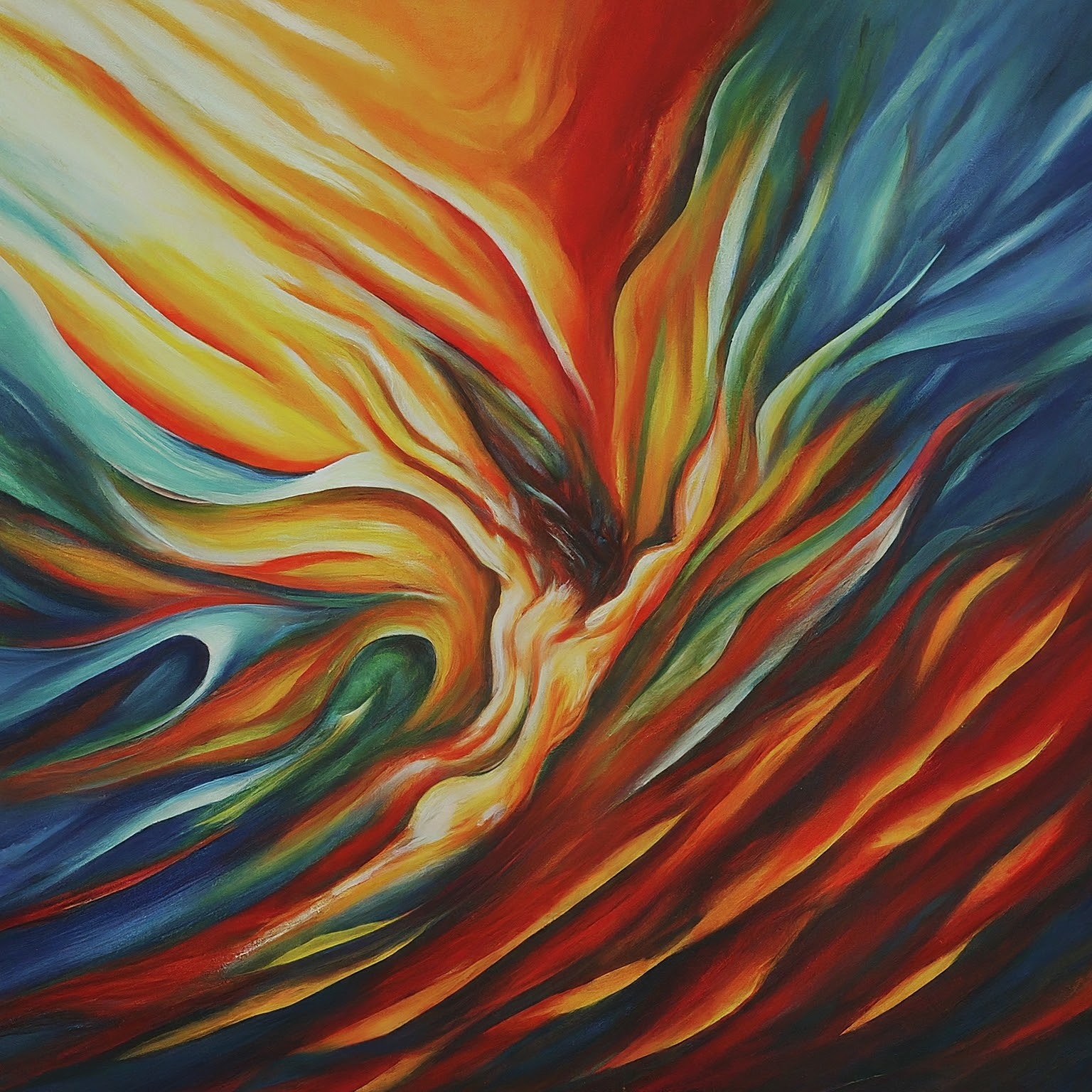When I reflect upon my own journey of following the mystical path toward spiritual development, I think about how I pray to God today compared to the way I used to pray. The difference is huge—like night and day. In fact, I used to avoid praying altogether. I didn’t see the point. It made me feel weak. Like I was lazily deferring the responsibility of solving my own problems to someone else.
Now, prayer is the very cornerstone of my spiritual life and practice. I couldn’t imagine my life without it. Getting to this point required a major shift in the way I imagined and understood God and my own relationship with God. And that is exactly what the mystical life is about: establishing an authentic relationship with God.
By the end of this blog post, you’ll be thinking about prayer in a whole new way. Entering the mystical life requires you to deeply examine the following topics, which we’ll be covering:
- The way we are commonly taught to pray
- The dangers associated with the types of prayer we default to
- Alternative ways to contemplate and pray to God
- The metaphysics of prayer
- The role of prayer in the mystical life
- How to start praying like a mystic
With these new perspectives, you’ll have everything you need to start praying to God in a way that feels more authentic to you. It’s nothing complicated. It’s all stuff that you can start putting into practice today!
How We Usually Pray To God
Prayer practices vary quite a bit across religious traditions and individuals. Nevertheless, there is a general blueprint for prayer that many of us grow up with and often go through much of life without questioning. It is the form of prayer that we are taught as children and see dramatized in movies and on television. When our spiritual leaders urge us to pray to God, this is the image that pops into our heads: a person on their knees with hands clasped begging and pleading with God to change some circumstance in their life. This is not the wrong way to pray to God. But it is not the only way. It is not the mystical way.

Two Misguided Extremes Of Prayer
You hear people say that you “should” pray to God: a priest or minister, a mentor or guru, maybe even a friend or parent. The problem is, whenever we are told we “should” do something, we tend to swing toward one of two extreme responses: 1) we follow blindly, doing that thing regularly without really thinking about why we are doing it, or 2) we do the exact opposite, avoiding that thing like the plague, whether out of spite or simple indifference.
This is exactly what happens to many of us with prayer. You might get into the habit of turning to God every time you want something in life. You beg and plead for that new car or job promotion or simply to make your tummy ache go away.
Or, you do what I did for so long. I didn’t really know that prayer could be anything but asking for stuff, and I had quite a judgmental attitude about it. I thought, “Prayer is for the desperate. It’s for unbearable circumstances only.” So, I refused to pray, thinking that the point is to hold out as long as possible until you absolutely couldn’t stand it anymore. Like a game of Mercy, where you interlock fingers with someone—in this case, God—and you fight it out until one of you either has your hand broken or screams, “Mercy!”
Well…I was wrong. God doesn’t want to break your fingers. I mean, it wouldn’t really be a fair contest anyway because God doesn’t have fingers of his own. If your current relationship to prayer follows either of these extremes—asking God for specific outcomes or stubbornly turning the cold shoulder—don’t worry! The good news is that there are other ways to pray to God.
To Whom (Or What) Are We Praying?
Why do we fall into these extremes in the first place? There is something else going on besides just our natural human aversion to the word “should.” Just as many of us grow up with a constrained idea of what praying to God looks like, we also often inherit a certain way of thinking about God himself: namely, that God is a “himself” or “herself” or “Father” or “Mother.” We ascribe personhood to God to make it easier to enter into an intimate relationship with God. But God is not a person. God is not even a thing. God is, rather, the ground of all “thingness.” It is the essence of the universe itself, the scaffolding upon which everything else is constructed.

Once you realize this fundamental truth, you can have an intimate personal relationship with God without feeling the need to treat It as a person. God is transcendent of the confines of “thingness,” but It is also something that lives in the inmost part of you. For that reason, It is always there for you to call upon. The difference is, you can let go of the feeling that God is a “someone” who needs to be persuaded through arm-twisting and finger-breaking.
How To Talk To God Like A Friend
You certainly may continue to imagine God as a person, but try to do so in a different way. Instead of imagining God as the powerful authority figure who lays down the “shoulds” and “musts,” the “yes” or “no” answers to our prayers, try to pray to God the way that Teresa of Avila, one of the great Christian mystics, advises:
“Mental prayer, in my opinion, is nothing else than an intimate sharing between friends; it means taking time frequently to be alone with Him who we know loves us. The important thing is not to think much but to love much and so do that which best stirs you to love. Love is not great delight, but a desire to please God in everything.”
St. Teresa of Ávila
There’s a time and place for petition prayer, but if you want to open yourself to mystical prayer, then you have to place yourself before the Beloved as a friend.
This is not a radical idea. Exodus 33:11 succinctly states, “The Lord would speak to Moses face to face, as one speaks to a friend.” So, there is a scriptural precedent for talking to God like a friend. Next time you try to pray to God, imagine the two of you are sitting face to face at a coffee shop. You are not in the presence of a Supreme Being. You are just chatting with an old friend over a couple of pumpkin spice lattes. Splurge a bit and get yourself a muffin, too, if you’d like. The point is to feel comfortable, to feel like you can be yourself and say anything in the presence of God without feeling judged. God is not trying to judge you. Like your friend, God just wants to help you thrive.

The Metaphysics Of Prayer
When we want to understand how something in the material world works, we turn to physics. Likewise, when we want to understand the mechanism of something spiritual, like prayer, we turn to metaphysics.
So, what is actually happening when you invite God to a coffee chat? What is the metaphysical basis of prayer? When we pray to God as if talking to a good friend, we are opening ourselves up. We’re laying everything out on the table, becoming our most vulnerable selves. Sometimes our prayers surprise us because we discover our most sincere desires that have gone unspoken and hidden, even from our own conscious minds, until the moment when we whisper them in confidence to God. And that is exactly what makes prayer so powerful—in it we discover parts of ourselves that were hidden.
In that willingness to be completely open, we allow that which is hidden within us to bubble to the surface. And that includes the Divine Itself. You can’t force God to appear and you certainly can’t change the will of God. Prayer is never meant to change or persuade God. It is meant to change us. We stop trying to cope with everything on our own. We swallow our pride and call up our friend to help us see things in a new way. Like our people friends, instead of magically fixing everything, God is going to tell us what we already know deep down; we just need to hear it said to us from across the table so that we can get out there and do something about it.
Pray To God Like A Mystic
Prayer is your gateway into the mystical life. There’s no other way to mysticism but through prayer. This is true in any religion. Because prayer is about connecting with God directly. It’s a conversation between two best friends. Prayer is also an evolving process. Just as friendships evolve and deepen over time with every conversation, there are levels to prayer. In Christian mysticism, there are 3 levels and 3 types of prayer within each level, amounting to a total of 9 levels of prayer. There are no shortcuts here, so we all must start with level 1, which is known as the Purgative Way.
How To Start Praying: The Purgative Way
Religious and spiritual folks love tossing around fancy-sounding terms, but the meaning of this one is pretty simple. Purgative = purging. This type of prayer is the Purgative Way because you’re purging all the things about yourself that aren’t helping you. I’m using Christian language here, but purgative action is a necessary starting point for spiritual development in most religious traditions. The Indian guru Paramahansa Yogananda says,
“You do not have to struggle to reach God, but you do have to struggle to tear away the self-created veil that hides him from you.”
Paramahansa Yogananda, Indian guru
The Baha’i prophet Baha’u’llah similarly advises, “Loose thy soul from the prison of self.” And the Daoist sage Lao Tzu writes, “Those who seek learning gain every day; those who seek the Way lose every day.”
We get neurotic about asking God for a bunch of stuff because we have this silly idea in our heads that we have a clearer understanding than God does of what’s best for us. First, we have to purge ourselves of that thought. Next, we have to purge ourselves of whatever else is holding us back from bringing openness and authenticity to our prayer practice.
The 7th-century monk John of Damascus describes prayer as “the raising of the mind and the heart to God.” When we pray, we lift ourselves up to the contemplation of the Divine. Contemplate the Divine in whatever way works best for you. Maybe you are being held back by the weirdness of personifying something that you know is not a person or even a thing. Try instead to think of prayer as spending time with the Essence that enlivens your soul, the raw energy of Being that animates you. Let that thought move you to a state of wonder.

Pray To God For Self-Transformation
The scholar Robert Fuller has a great book about wonder as the emotion that lies at the core of all religious experience. He explains how:
“Meditation and mystical practices temporarily deactivate a person’s accustomed way of experiencing the world. As a result, experience appears novel, fresh, unaccustomed.”
Robert C. Fuller, scholar of psychology of religion
That’s exactly what we’re after when we pray. We need to tap into that sense of childlike wonder that helps us see things fresh, purged of our normal ego concerns.
As difficult as it may be, when you pray to God, pray for inner fortitude, not external outcomes. When you’re feeling afraid, don’t pray for an easy resolution. Instead, pray for courage. If someone betrays you, don’t pray for justice. Pray to become someone who can forgive. If you’re sick, don’t pray for a miracle. Pray for endurance. If you are overcome with grief, don’t pray for answers. Instead, pray that the loss does not numb your heart.
Trust me, I know this is hard to hear, but I speak from experience. It’s the difficult truth that your friend tells you from across the table: don’t struggle trying to change the things you can’t control; you’ll break your fingers that way. Instead, let those challenging moments change you into someone who can handle future adversity with more equanimity; let them crack you open just enough to let the Divine within turn you into the person you were meant to be. This is not just for your own benefit. It will help you to help others. As Pope Francis says, “You pray for the hungry. Then you feed them. That’s how prayer works.” Prayers manifest through real-world follow-through, not magical thinking.
None of this will be easy at first. But that’s okay! This is just the start of our journey together.
Frequently Asked Questions
You can absolutely pray in your head! Prayer does not need to be vocalized outwardly to be heard by God. In fact, prayer is all about inviting the divine into your innermost being. So, it makes perfect sense for prayer to be internalized in your head.
Yes, it’s definitely okay to pray with your eyes open! We tend to have stock images in our heads of what prayer “should” look like. Usually, it’s something like a person kneeling with hands clasped and eyes closed. But people pray with their eyes open all the time. When it comes to prayer, what’s in your heart matters much more than your physical posture or appearance.
There are few things that you absolutely can not do while praying. That’s because the whole purpose of prayer is for it to be a deeply personal practice. You should pray in whatever way is most comfortable and which allows you to communicate with God in the same manner in which you might speak to a close friend.
Paragraph
Paragraph



